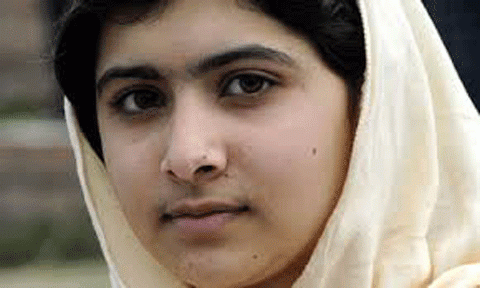“We realize the importance of our voices only when we are silenced.” ―Malala Yousafzai
In the sweltering heat of Swat Valley, northwest Pakistan, the engine of a school van revs as children stream in and take seats, happy to go back home after a full day in school. A rather awkward character waits for all the children to board. He then leaps into the crowded van and asks, “Who is Malala?” The innocent children point the stranger in the direction of the 15-year old. The gunman gets out a pistol, points it to Malala Yousafzai’s head and pulls the trigger, three times.
One bullet pierces Malala’s left forehead, travelling under the skin to her face and then into her shoulder. Under the impact of the bullets, the young girl arches backwards then slumps to her seat. The masked Taliban gunman confidently strides away amid wails and screams from the frightened children. A frantic crowd watch as the critically injured girl, spattered in her blood, is rushed to the hospital.
The Taliban, supported by the Al Qaida terror group to gain control of the Swat Valley, had been angered by Malala’s views on promoting education for girls in the district. Malala had been running a blog for the BBC, using a pseudonym, detailing her life under Taliban occupation and advocating against the exploitation of children and the suppression of their rights.
Upon recovery, Malala has continued to speak for the 168 million child labourers in the world today, and for the 65 million primary-school-age girls who are out of school. Asked how she would react if she were confronted by a member of the Taliban again, Malala said,
“I’ll tell him how important education is and that I even want education for your children as well.” She continued, “I’ll tell him, ‘That’s what I want to tell you; now do what you want.’ ”
The words of this 17-year old girl who stared at death in the hands of a Taliban killer only two years ago demonstrate the immense possibility, forgiveness and hope that the human spirit holds. Malala’s tremendous courage in standing up for girls’ right to education has made her the first Pakistani, and the youngest person ever, to win the Nobel Peace Prize.
Malala did not set out to win the Nobel Prize. She just had a clear vision and the courage of conviction that she set out to follow, regardless of her station in life, or the obstacles in her way. A vision and conviction she persists in, and for which she is willing to die.
Copyright ©2014 David Waweru





